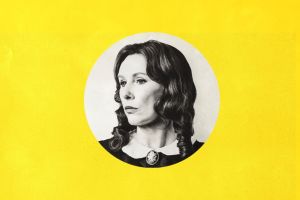Brief Encounter With … Rajat Kapoor
Hamlet the Clown Prince, a show with a
running time of just 100 minutes, sees a troupe of clowns reinterpret one of
Shakespeare’s most complex plays. The Company Theatre, a Mumbai, India-based
group, uses traditional clowning and irreverent, clever humour to highlight the
love story at Hamlet’s heart.
The show’s director, Rajat Kapoor, is best known in India
for his film work, but has had considerable success with this and other theatre
productions, winning a slew of gongs at India’s most prestigious theatre
awards. British audiences will know Kapoor from his role in the 2001 film,
Monsoon Wedding. Here he tells us about his innovative
approach to Shakespeare.
Why Hamlet?
I think everybody wants to do Hamlet at some point of their
lives, all actors, all directors. What is it about Hamlet that makes it the
most popular play that everybody wants to do? I don’t know, I can’t figure it
out. Maybe we do it because everybody does it. I don’t know. But yes, there is
a pull.
What do you think clowning brings to the
play?
I was not interested in doing a straight Hamlet, not at all.
Clowns give you all kinds of liberties. You are able to step back and directly
comment on the text, on the characters. So Hamlet will twist Ophelia’s arm and
then someone says, “why is Hamlet doing it? Is that the way to treat someone
you love?”
Does the clowning make the play more accessible
to audiences do you think?
Oh sure. As the chief clown says in the play when he finds
out they’re doing Hamlet, “we’re doing Hamlet? Nobody talks
like that anymore. You say thee, thou, thy and the audience die. Let’s do
something contemporary”. For me, I understand the text better because of this
exercise.
What would you say are the greatest influences
on your work?
I think you have to trace it back to Chaplin and Buster
Keaton. Those are the original clowns.
Hamlet the Clown Prince is
only 100 minutes long. How did you decide what of Shakespeare’s text to cut?
We were trying to find the essence of the text, so a lot of
the plot has gone, all the political things, Fortinbras, all of that. It
doesn’t excite us. What is the essential tragedy of Hamlet? The tragedy of
Ophelia. That’s what concerned us, so we looked only at that.
You’re a respected actor as well as a director.
Were you ever tempted to perform in this production yourself?
No no no! In my last play, C for Clown,
one of the actors dropped out so I moved into his part, but that’s easier
because you know how it should be done. But to direct while acting on stage is
not possible, not for me. I’ve done that in film. It’s difficult, but it’s
easier.
I’m interested in the relationship between you
as an Indian director and your company as an Indian company with this canonical
English text, especially bringing it to this country…
I know. We were excited about how people here would react to
the way we have butchered Shakespeare. But so far the reaction has been
alright, quite good also at times. I don’t think there are any more purists of
that kind anywhere. People are open to it.
How important is Shakespeare in India?
Not as important as he is here but a lot of our stories come
out of Shakespeare. As a actor friend of mine says, “Bollywood would not exist
without Shakespeare”.
Have you got plans to do other Shakespeare plays
in this way?
In the next 10-15 years I want to do five more plays. Maybe
King Lear next, or a comedy. I like As You Like
It a lot. It would be wonderful to have five clown Shakespeares
running; that would be lovely.












